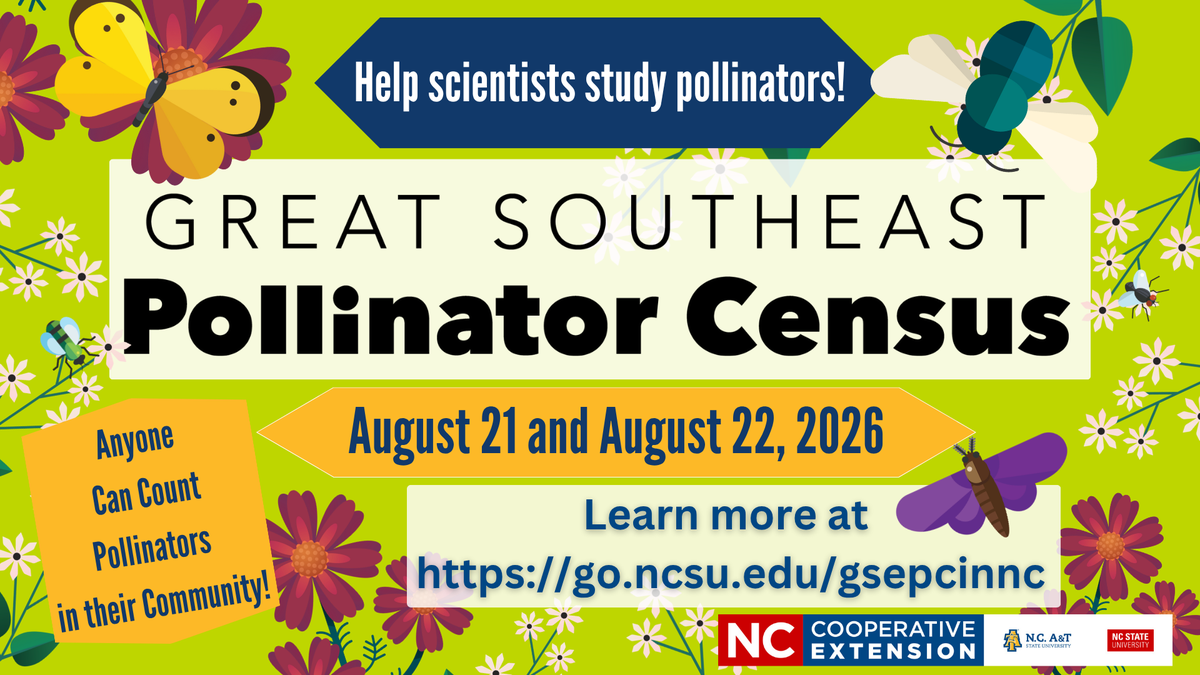
Check out the data summary from the last three years!
Help us capture a snapshot of pollinator activity in communities across North Carolina, including the types of pollinators and which flowers they visit, and help build a southeast-wide data set with other states!You don’t need to be an expert in insect identification! Anyone can participate!
We are proud to have the North Carolina Pollinator Conservation Alliance as a committed program partner!
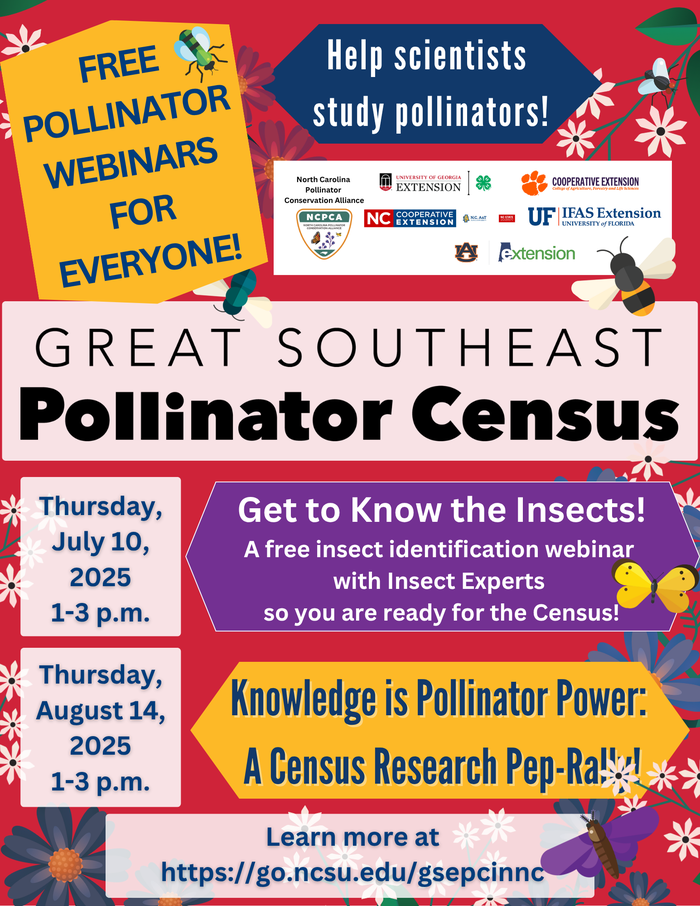
Webinars to Learn more!
"Get to Know the Insects" Insect Identification Webinar was held on Thursday, July 10, 2025. You can view the Insect Identification Webinar Here: https://go.ncsu.edu/
The Knowledge is Pollinator Power Webinar was on Thursday, August 14, 2025, and it was a fun research update from three amazing pollinator researchers and another Census pep-rally! We talked about nectar resources in your flowers, bee host plants and butterflies. Watch the recording here: https://go.ncsu.edu/
Goals
- To Inspire people to create sustainable pollinator habitats.
- To increase participants’ interest in and knowledge about pollinators.
- To collect data about the number and variety of pollinators and the flowers that attract them.
How it Works- On Friday, August 21, or Saturday, August 22, 2026:
- Review the brief instructions: Insect Counting and Identification Guide, How to Count, and the Counting Sheet (these are 2024 handouts that will be replaced when the 2025 materials are available)
- Take a copy of the official datasheet, a pencil, a hat, a drink, and a chair.
- Identify a plant that has insects landing on it (anywhere in NC, SC, GA, AL or FL)
- Set a timer for 15 minutes.
- Fill out the datasheet by putting a tally mark next to the type of insect you see each time it lands on the plant (EVEN if you think it is the SAME insect)
- After 15 minutes, enter your data online using the QR code or URL at the top of the datasheet.
- Print a certificate showing you participated or print a sticker to show your Census pride!
- You can record as many more 15-minute observations as you like through out the two data collection days.
Hosting a Census Event
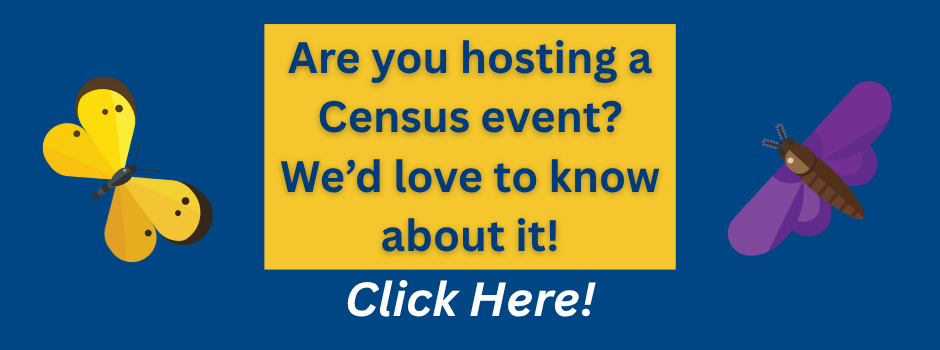
Let us know if you're hosting an Event, so we can keep in touch and celebrate your pollinator successes!
- Please use hashtags: #gsepcinnc #ncpollinators #southeastpollinatorcensus #sharethebuzz
- Help Us Evaluate the Census through Your Event
- Need some quick and easy resources for your Census event? Check out our Pollinator Outreach Kit item list.
- Here is some guidance for hosting a Census Event, based on your community focus
Attending a Local Counting Event
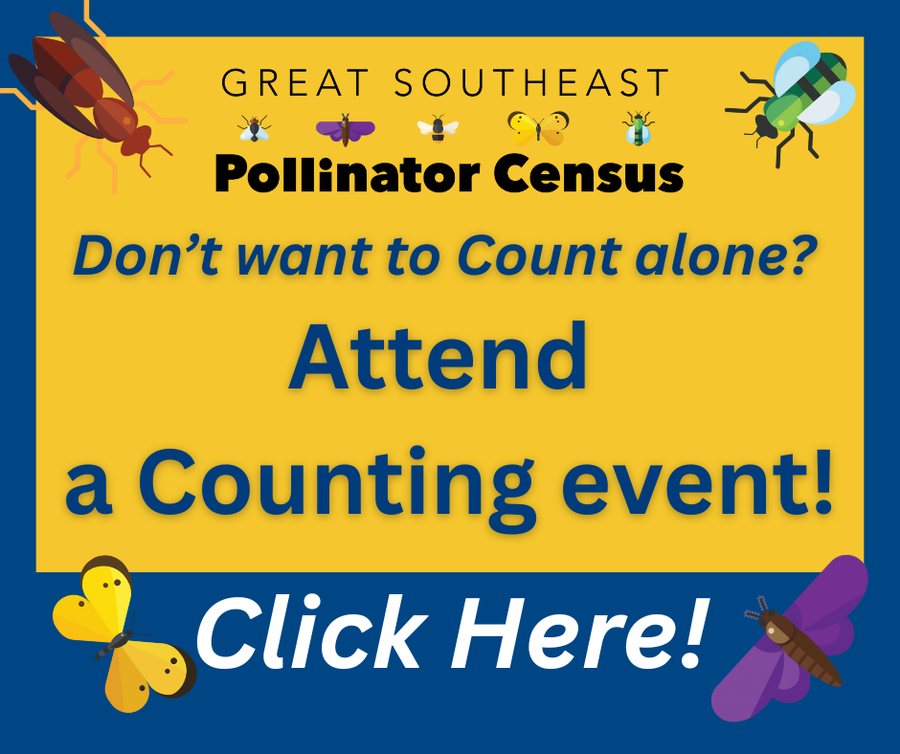
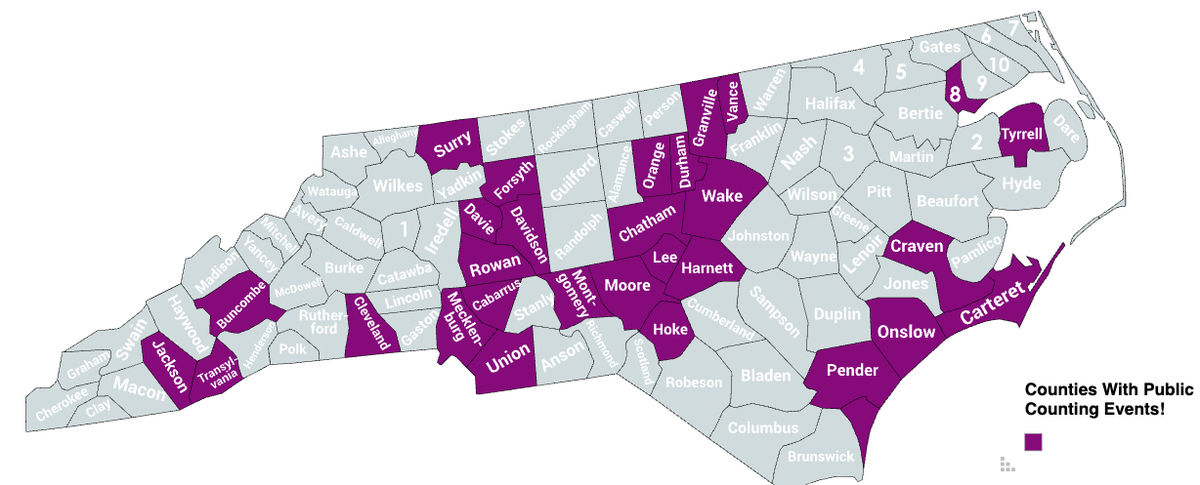
Marketing
- 2025 NC-Specific Marketing Materials to Help with Your Event (including free branded coloring sheets!)
- GSEPC Regional Marketing Materials
- GSEPC Regional Resources
- Past Media Coverage of the Census
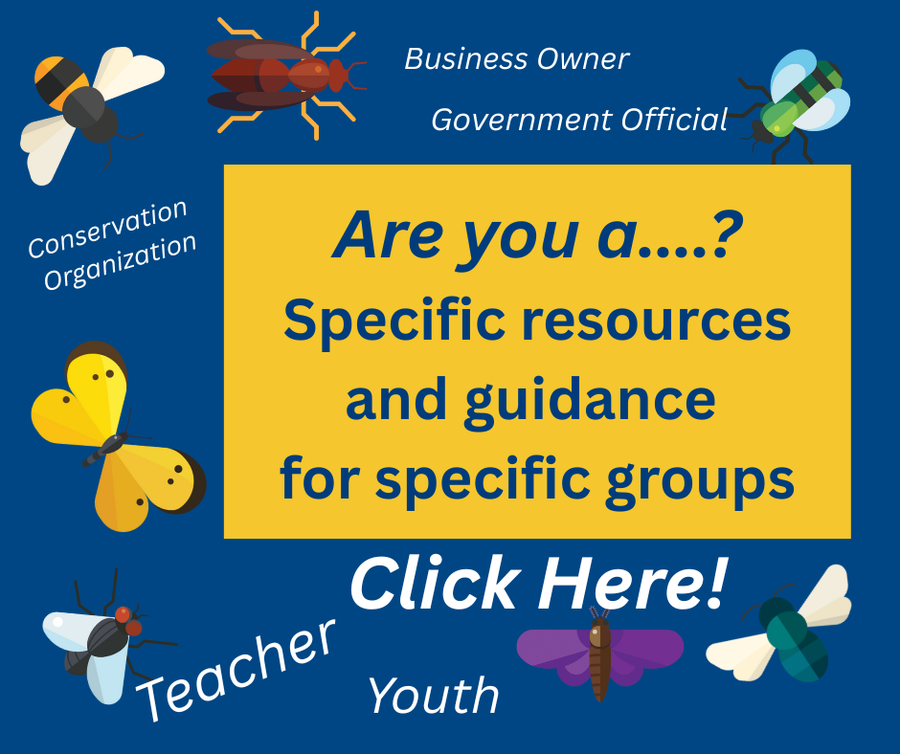
Stay Engaged
Learn More
-
Webinars
-
- Knowledge is Pollinator Power Census Webinar 2023 (Dr. Danesha Seth-Carley, Dr. Hannah Levenson, and Dr. Matt Bertone)
- Knowledge is Pollinator Power Census Webinar 2024 (Dr. Hannah Levenson, Dr. Elsa Younsteadt, Ezra Bailey, and Maegan Luckett)
- NC Participates in the Great Southeast Pollinator Census.(N.C. Cooperative Extension, Lee County Center)
- Lunchtime Discovery: Saving Southeastern Pollinators With Citizen Science (NC Museum of Natural Sciences)
- Lunchtime Discover Series: NC Citizens Study Pollinators! Two years of the Great Southeast Pollinator Census in North Carolina (NC Museum of Science)
-
-
Pollinator Resources
- Census-Inspired Picture Book (New for 2025!!!): The Great Pollinator Count by Susan Edwards Richmond
- Pollinator Haven Garden in Sanford, Lee County, NC
- Pollinator Paradise Garden in Pittsboro, Chatham County, NC
- Find a local Extension Demonstration Pollinator Garden near you!
- The Pollinator Checklist: A Simple Community Science Tool From NC State Researchers
- Ground-Nesting Bees Deserve to Be Appreciated, Not Mistaken for Yellow-Jackets
-
Success Stories
Want to do more than the Census? There are more Pollinator Community Science Projects!
While the GSEPC only collects data on the Census days in August, you can use the Census materials at any time, with any group, for a fun, inspirational, educational program.-
- Bee Scavenger Hunt (for younger students)
- Pollinator Checklist (more detailed data sheet for older students and adults)
- Southeast Bumblebee Atlas- Very involved, deeper level of engagement with bumblebees! This is a project of the Xerces Society for Invertebrate Conservation
- SciStarter- General website you can find various community science project on, including pollinator-related ones! Many libraries in NC partner with this organization.
- iNaturalist- Record animals and plants you observe in your neighborhood and contribute to science!
History
Becky Griffin, Community & School Garden Coordinator at the University of Georgia Extension, founded the Great Southeast Pollinator Census in 2017 (originally the Great Georgia Pollinator Census). It began as a pilot project to educate community garden managers and teachers about the importance of pollinators. It has evolved into a multi-state program that inspires community scientists to spend 15 minutes observing pollinators. In 2022, Lee County Extension Horticulture Agent Amanda (Wilkins) Bratcher introduced the North Carolina Cooperative Extension to the Census.
Here is a short link to share this page: https://go.ncsu.edu/gsepcinnc.